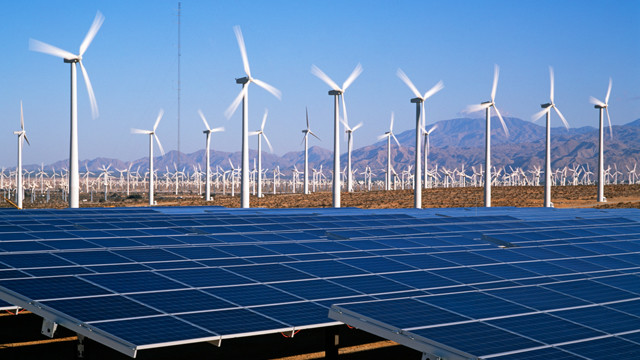No country on track 100% to meet 2050 renewable energy target

By Faridat Salifu
The Renewable Energy Tracker (RET) has declared that no country is on track to meet the goal of 100% renewable energy by 2050.
In a report from the Climate Action Network (CAN) about progress made so far on renewable energy targeted goal by 2050, RET raised alarm over global efforts to tackle energy poverty and the climate crisis.
The organisation revealed a concerning lack of progress toward providing clean, affordable, and accessible energy for all.
The report revealed that in spite of increasing investments in renewable energy, the benefits are concentrated in wealthier nations, leaving vast populations in developing regions, especially in rural areas, reliant on harmful cooking fuels and without access to clean electricity.
Julie Ducasse, Coordinator on Renewable Energy Data at CAN, emphasized the disparity, noting, “The current distribution of renewable energy is highly unequal, leaving millions without clean electricity and stalling socio-economic progress.”
The report attributes these inequalities to a range of barriers, including mounting foreign debt, limited public grant-based financing, and the high cost of capital in developing regions.
These financial hurdles have made it difficult for developing nations to establish their own renewable energy infrastructure, further exacerbating the gap between the global North and South.
The report also criticized developed countries for failing to adequately deploy renewable energy within their own borders, as well as for not providing sufficient financial support to developing nations.
Ducasse called on wealthier nations to “step up” and provide more equitable financial and technological assistance. “The industry must uphold the highest standards for human, land, and environmental rights to ensure a just and equitable energy transition,” she said.
Elizabeth Wangeci Chege of Sustainable Energy for All warned that the world is running out of time to meet the Sustainable Development Goal (SDG 7) target of ensuring affordable, reliable, and sustainable energy for all by 2030.
“We are now beyond the halfway point of the Decade of Action, yet the global share of renewables in total energy consumption has regressed,” she said, stressing the urgency to accelerate the clean energy transition.
The report also provides insight on the exploitation of developing regions, particularly in Africa, where nations are burdened by high capital costs, limited technological access, and foreign debt.
Karabo Mokgonyana, a Renewable Energy Campaigner at Power Shift Africa, underscored the injustice faced by these regions, stating, “Africa and other developing regions are being exploited and left behind in this global energy race. We want an energy transition that is a tool for development for all.”
As global leaders and energy stakeholders prepare for upcoming international climate discussions, the report serves as a stark reminder that without addressing these inequalities, the world is unlikely to meet its renewable energy targets or create a fairer, more sustainable future for all.
With just over 2,000 days left until the 2030 SDG target, the report calls for immediate action to reverse the current trends and prioritize the needs of the most vulnerable communities in the global energy transition.
